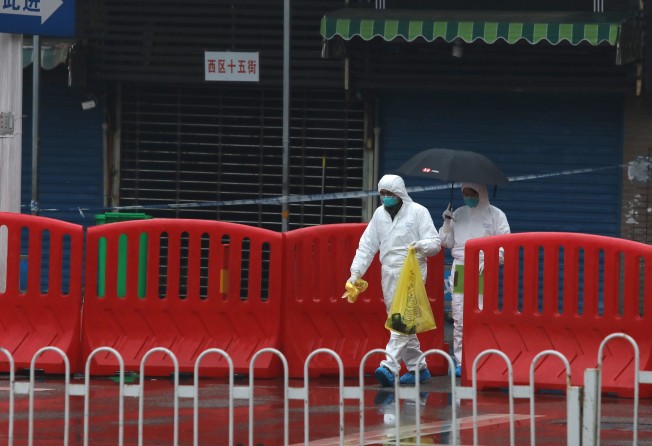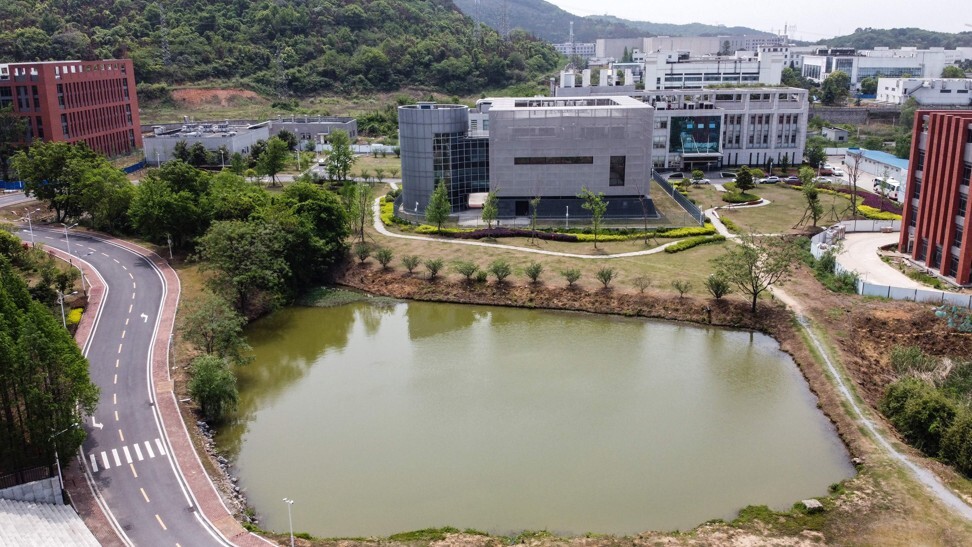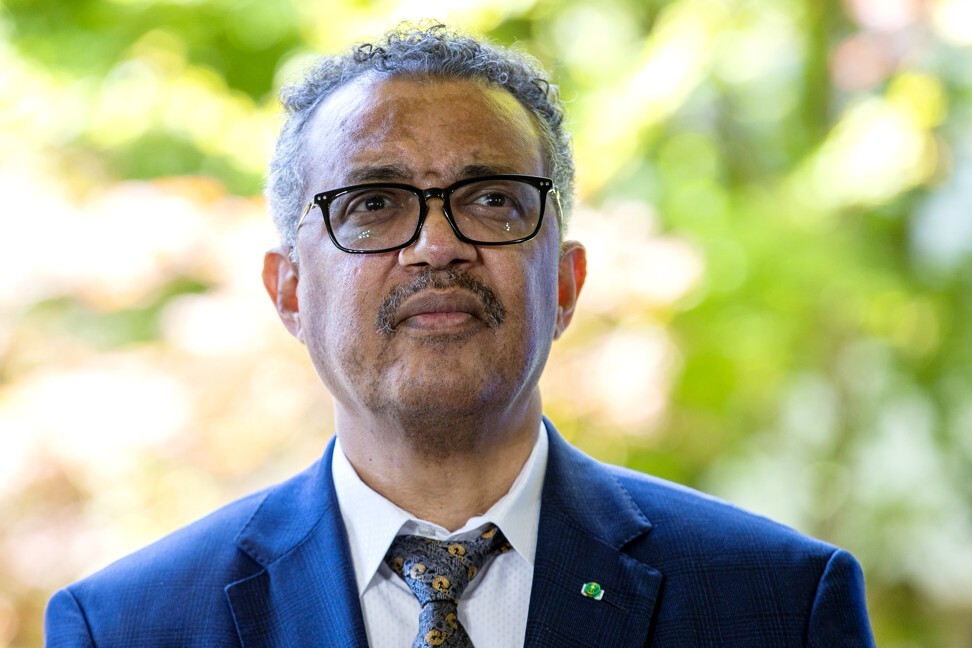Coronavirus: WHO to send second team into China to seek source of Covid-19
- As number of cases tops 10 million and WHO warns that the pandemic is far from over, an investigative team will go to China next week
- Experts are sceptical that an inquiry more than six months after first outbreak can find definitive answers about the origin of the virus

As the world marks the grim six-month milestone since Beijing confirmed the existence of the new coronavirus, the World Health Organisation announced it would send a team into China to investigate the source of the pathogen, which has now killed more than half a million people.
“We can fight the virus better when we know everything about the virus, including how it started,” WHO director general Tedros Adhanom Ghebreyesus said on Monday in Geneva. “We will be sending a team next week to China to prepare for that.”
The announcement comes six months after China first notified the WHO of an outbreak of mysterious pneumonia linked to a fresh food market in the central city of Wuhan, a disease later named Covid-19.
It was labelled a pandemic on March 11 and has now accelerated to a rate of a million new cases a week, according to the WHO. More than 10 million people have been infected and Tedros warned on Monday that the pandemic was far from over.
“With 10 million cases now and half a million deaths, unless we address the problems we have already identified at WHO, the lack of national unity and lack of global solidarity and the divided world, which is actually helping the virus to spread, as I said in my speech, the worst is yet to come.”
Tedros did not provide details on who would join the China-bound team. A previous WHO-China joint mission in February was made up of 25 medical specialists, including from WHO, seven countries and Hong Kong, and Chinese experts.
But investigations into the origins of the virus have become highly politicised in recent months, with some in the United States government calling the pathogen a “China virus” and suggesting without evidence that it could have escaped from a high-security laboratory in Wuhan that investigated viral causes of disease.

The comments angered China, which threw back accusations that the virus might have been brought into Wuhan by the US military.
Scientists have largely rejected those theories, suggesting the pathogen most likely came from a bat into an intermediary animal which then passed it to humans. Early views that this happened within the Wuhan wet market – which also sold live and butchered wild animals – have been called into question by the lack of evidence of a clear animal link. In addition, a number of early infections had no clear connection to the market.
Experts are sceptical that the WHO inquiry will provide any new insights, coming well over six months after the virus was likely to have first made the jump into human beings.
“It’s such an enormous exercise, you are looking for the needle in the haystack … all we can do now is narrow it down to a list of options and attribute different likelihoods to each option,” said veterinary epidemiologist Dirk Pfeiffer, a professor at City University of Hong Kong.
“The WHO mission is an additional perspective. It’s not about doing anything better [than China’s scientists], it’s about an outside perspective on what they have done and what they have found and how they interpret it.”
An inquiry into the origins of the coronavirus was the subject of intense discussion and discord leading up to the World Health Assembly in May, as the US pushed for countries to launch a probe into China’s handling of the outbreak and the sharing of information as it looked to hold Beijing accountable for the spread of the disease.
Member states eventually backed a European Union-led resolution that called for international organisations to work together to identify the source of the virus and supported an independent evaluation into the global health response to the virus.
“China has always believed that the tracing of the origin of the virus is a scientific issue which should be studied by scientists and medical specialists,” China foreign ministry spokesman Zhao Lijian said on Tuesday. He said China remained in “communication and coordination” with the WHO over origin tracing.
“China will continue to support scientists around the world in conducting scientific studies on the origin and transmission route of the virus,” Zhao said.

The resolution at the assembly would have put pressure on the WHO to further inquire into the origins of the virus, according to Yanzhong Huang, a senior fellow for global health at the Council on Foreign Relations in New York, a think tank.
“It’s very clear that more than 100 countries are asking for an investigation into the origins of the outbreak, so since the WHO is a member-state organisation, it has to respond to the requests of the member states,” Huang said.
The WHO may also be using this as an opportunity to “re-establish [its] reputation as a neutral, authoritative technical agency”, he said.
In May, the Trump administration said it would withdraw the US from the organisation after weeks of accusing its leaders of pandering to Beijing and slowing the global response to the virus.
The level of access afforded the WHO team in China could depend on who was on the team and whether Beijing perceived it as neutral, Huang said. He also noted that China would not want to be perceived as uncooperative.
In his comments on Monday, Tedros gave little detail about the mission or whether it would be run as a joint body also led by a Chinese health official, as was the case for the WHO team visit in February.
Zeng Guang, chief epidemiologist at the Chinese Centre for Disease Control and Prevention, told People’s Daily tabloid arm, the Global Times, on Tuesday that a search for the origins of the virus should not just take place in China.
“It does not matter which country the scientific identification work starts with, as long as it involves all related countries and is fairly conducted,” Zeng said, echoing previous comments from Chinese officials who said that even though the virus was first reported in China, it did not mean it came from China.
The WHO has said that China’s scientists were investigating the origins of Covid-19 with environmental sampling at markets and farms in areas where the first human cases were identified and tracing the source and types of wildlife species and farmed animals sold in wet markets.
But there have been no public indications that those investigations have yielded significant leads. Chinese CDC director Gao Fu last month said research had not identified the intermediary host.
“Because this virus was spreading so quickly, it got away from us before we got close to its source,” said virologist Ian Mackay, an associate professor at the University of Queensland in Australia.
“We’re on the back foot and trying to track down such a fast moving virus is very difficult retrospectively. And we don’t know how much time has passed … we don’t know how long this virus has been ticking along somewhere or passing slowly between humans.”
While a “Eureka moment” of discovery was not likely during the WHO team visit, international experts could discuss Chinese researchers’ past and future investigations, Mackay said.
“There’s been a lot of politics involved around the uncovering of this virus, it’s much better to just get scientists in a room to talk about it,” Mackay said.
Additional Reporting by Sarah Zheng